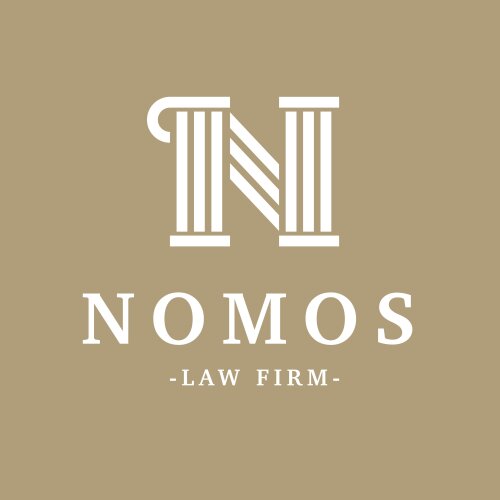Best Corporate & Commercial Lawyers in Italy
Share your needs with us, get contacted by law firms.
Free. Takes 2 min.
Or refine your search by selecting a city:
List of the best lawyers in Italy
Italy Corporate & Commercial Legal Questions answered by Lawyers
Browse our 1 legal question about Corporate & Commercial in Italy and read the lawyer answers, or ask your own questions for free.
- INFO APPOINTMENT FOR MARCH 2026 FROM 20th TO 24th
- Hello, My name is [name removed]. I am planning to open a pizza/ bakery business in Phuket (Rawai/Nai Harn). I need help with: company registration (Thai Limited) business license and permits work permit and non-B visa accounting and tax services Could you please send me a quote, timeline and services... Read more →
-
Lawyer answer by Ascendance International Consulting (A-I-C)
Thank you for your enquiry and for outlining your plans to open a pizza and bakery business in Phuket. We can assist with Thai limited company registration, business licensing and permits, work permit and non-immigrant B visa applications, as well...
Read full answer
Italy Corporate & Commercial Legal Articles
Browse our 2 legal articles about Corporate & Commercial in Italy written by expert lawyers.
- How to Register an SRL in Italy: A Guide for Foreign Investors
- Italy offers a dynamic market for international investors, serving as a gateway to Europe and the Mediterranean. However, its bureaucratic reputation is well-earned. For foreign entrepreneurs, navigating the setup of an Italian company requires patience, precision, and a clear understanding of the legal landscape.The most common corporate structure for small... Read more →
- Setting up an S.r.l. in Italy: A 2026 practical guide
- Foreign investors usually choose between a traditional S.r.l. (more flexible, more respected by banks) and a simplified S.r.l. (S.r.l.s) (cheaper to set up, but more rigid and sometimes less bank-friendly). Every Italian company must have a PEC certified email and at least one digital signature; without them you cannot file... Read more →
About Corporate & Commercial Law in Italy
Corporate and commercial law in Italy governs how businesses are formed, operate, merge, and close, as well as how companies interact with each other, consumers, and public authorities. Italian corporate law is rooted in the Italian Civil Code, with key updates and sector-specific regulations shaped by European Union directives. It covers a broad spectrum, including company formation, mergers and acquisitions, shareholding structures, commercial contracts, and compliance rules. For anyone engaging in business activities in Italy-whether as a local entrepreneur, a multinational corporation, or an overseas investor-it is essential to understand Italy's legal landscape to ensure operations run smoothly and within the law.
Why You May Need a Lawyer
While some basic business transactions can be handled independently, there are many situations where working with a qualified corporate and commercial lawyer in Italy is strongly advised. These include:
- Establishing a company or branch office in Italy
- Drafting and negotiating key commercial contracts
- Understanding regulatory and tax obligations
- Acquiring or selling businesses or assets
- Handling shareholder disputes or governance issues
- Ensuring compliance with EU and Italian competition laws
- Protecting intellectual property and trade secrets
- Managing restructuring, insolvency, or bankruptcy proceedings
- Navigating labor law issues specific to business operations
Legal advice helps prevent costly mistakes, ensures regulatory compliance, and protects business interests in both routine and complex matters.
Local Laws Overview
Italian corporate law is part of the broader Civil Law system and is primarily enshrined in the Italian Civil Code alongside a series of special laws and EU regulations. Here are some important elements of corporate and commercial law in Italy:
- Company Types: The most common forms are Srl (Società a responsabilità limitata - limited liability company), and Spa (Società per azioni - joint-stock company).
- Company Incorporation: The process involves drafting articles of association, registering with the Companies Register (Registro delle Imprese), and meeting notarial requirements.
- Governance: Strict rules apply to director duties, shareholder rights, transparency, and corporate governance.
- Contract Law: Italy has distinctive contract law requirements, including formality for certain transactions and mandatory provisions.
- Employment Law: Italian labor laws, including the Workers’ Statute, play a significant role in corporate operations.
- Competition Law: Both Italian and EU competition rules protect against market abuse and collusion.
- Taxation: Tax compliance is complex, with distinct obligations for corporate income tax, VAT, and reporting.
- Dispute Resolution: Courts, arbitration, and ADR (alternative dispute resolution) processes are used, with litigation often being slow.
Frequently Asked Questions
What are the main types of companies in Italy?
Italy offers several company forms, but the most common are Srl (limited liability company), Spa (joint-stock company), and Snc (general partnership). Each structure has different requirements for capital, governance, and liability.
How long does it take to incorporate a company in Italy?
The process typically takes two to four weeks, depending on document readiness and completion of the notarial process. However, certain sectors or foreign ownership can add time due to additional approvals.
Does Italian law allow 100 percent foreign ownership?
Yes, foreign individuals and entities can wholly own Italian companies, though specific regulatory approvals may apply to certain sectors such as banking, insurance, and defense.
What are the duties of company directors under Italian law?
Directors are expected to act in the company’s best interest, comply with statutory duties, maintain accurate records, and avoid conflicts of interest. They are held to high standards and can face personal liability for breaches.
Are shareholder agreements legally binding in Italy?
Yes, shareholder agreements are recognized and enforceable, provided they do not conflict with mandatory legal provisions or public policy. They help clarify rights, obligations, and dispute mechanisms.
What is the corporate tax rate in Italy?
The standard corporate income tax (IRES) is 24 percent. Additional local and regional taxes, such as IRAP, may also apply.
Are there legal requirements for annual accounts and audits?
Companies must keep proper accounts and file annual financial statements with the Companies Register. Auditing is mandatory for Spa companies and for Srl exceeding certain thresholds.
Can contracts be made in English or must they be in Italian?
While parties can agree on contract language, certain documents filed with Italian authorities and courts must be in Italian. Translations may be required for full legal effect.
What happens if a company faces financial distress or bankruptcy?
Italian law provides for restructuring options, insolvency proceedings, and bankruptcy under recently reformed codes. Timely legal guidance is critical due to potential liabilities and creditor implications.
How are commercial disputes typically resolved in Italy?
Disputes can be resolved via negotiation, mediation, arbitration, or litigation before Italian courts. Commercial litigation may be slow, so alternative dispute resolution is often recommended.
Additional Resources
For more information or specialized assistance, the following organizations and authorities can be helpful:
- Italian Chamber of Commerce (Camera di Commercio)
- Registro delle Imprese (Companies Register)
- Consob (Italian Securities and Exchange Commission) for financial regulations
- Agenzia delle Entrate (Italian Revenue Agency) for tax matters
- Italian Competition Authority (Autorità Garante della Concorrenza e del Mercato)
- Local law societies and business associations for professional recommendations
Next Steps
If you need legal assistance in the field of corporate and commercial law in Italy, consider these steps:
- Identify your specific issue or area of concern
- Gather all relevant documents, including contracts, company statutes, or correspondence
- Contact a qualified Italian corporate and commercial lawyer-preferably one who speaks your language and is experienced in your sector
- Set up an initial consultation to discuss your objectives and receive tailored advice
- Follow your lawyer’s guidance on compliance, documentation, and next actions
Taking early and informed action can protect your business interests, save costs, and prevent legal complications in the complex Italian commercial environment.
Lawzana helps you find the best lawyers and law firms in Italy through a curated and pre-screened list of qualified legal professionals. Our platform offers rankings and detailed profiles of attorneys and law firms, allowing you to compare based on practice areas, including Corporate & Commercial, experience, and client feedback.
Each profile includes a description of the firm's areas of practice, client reviews, team members and partners, year of establishment, spoken languages, office locations, contact information, social media presence, and any published articles or resources. Most firms on our platform speak English and are experienced in both local and international legal matters.
Get a quote from top-rated law firms in Italy — quickly, securely, and without unnecessary hassle.
Disclaimer:
The information provided on this page is for general informational purposes only and does not constitute legal advice. While we strive to ensure the accuracy and relevance of the content, legal information may change over time, and interpretations of the law can vary. You should always consult with a qualified legal professional for advice specific to your situation.
We disclaim all liability for actions taken or not taken based on the content of this page. If you believe any information is incorrect or outdated, please contact us, and we will review and update it where appropriate.
Browse corporate & commercial law firms by service in Italy
Italy Attorneys in related practice areas.
Browse corporate & commercial law firms by city in Italy
Refine your search by selecting a city.

















